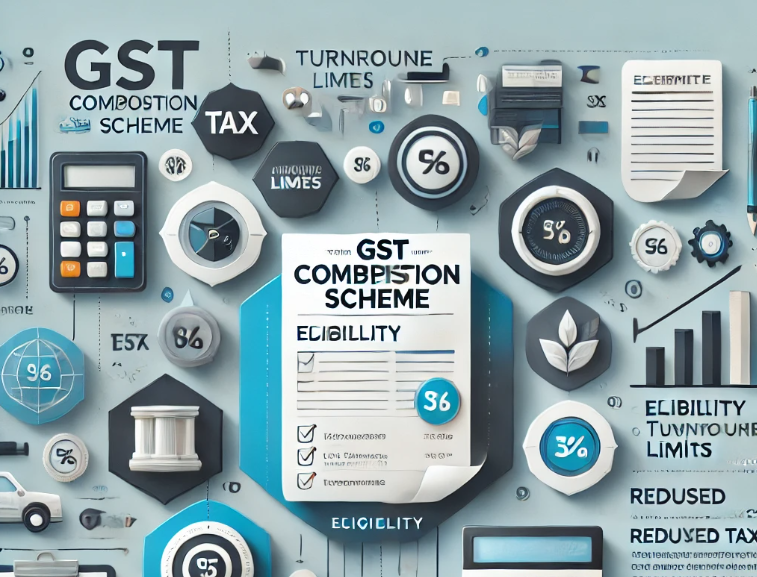Difference between Regular Scheme and Composition Scheme in GST
The Regular Scheme and Composition Scheme under the Goods and Services Tax (GST) in India cater to different types of businesses based on turnover and compliance preferences. Here’s a detailed comparison to help you understand the differences:
1. Applicability
-
Regular Scheme:
Applicable to all taxable persons under GST, with no turnover limit restrictions.
Mandatory for businesses exceeding the threshold turnover for GST registration. -
Composition Scheme:
Applicable to small businesses with an aggregate turnover of up to ₹1.5 crore (₹75 lakh for special category states).
Not available for certain businesses, such as e-commerce operators and service providers (except specified ones).
2. Tax Rate
-
Regular Scheme:
Tax rates vary based on goods or services supplied (e.g., 5%, 12%, 18%, 28%). -
Composition Scheme:
Fixed lower tax rates:- Manufacturers and traders: 1% of turnover.
- Restaurants: 5% of turnover.
- Service providers (specific cases): 6% of turnover.
3. Input Tax Credit (ITC)
-
Regular Scheme:
Eligible to claim Input Tax Credit (ITC) on GST paid on purchases. -
Composition Scheme:
Not eligible to claim ITC.
4. Filing of Returns
-
Regular Scheme:
- Monthly returns: GSTR-1 and GSTR-3B.
- Annual return: GSTR-9 (optional for small taxpayers).
-
Composition Scheme:
- Quarterly return: CMP-08 (self-assessed tax).
- Annual return: GSTR-4.
5. Billing
-
Regular Scheme:
- Issues a Tax Invoice with GST charged separately.
- GST collected is shown explicitly.
-
Composition Scheme:
- Issues a Bill of Supply (no GST charged on the invoice).
- Cannot collect GST from customers.
6. Compliance
-
Regular Scheme:
- Higher compliance requirements (monthly returns, ITC reconciliation).
- Suitable for businesses that deal with large clients or are in the supply chain.
-
Composition Scheme:
- Simplified compliance with fewer returns.
- Best for small businesses with local operations.
7. Eligibility
-
Regular Scheme:
No restrictions based on turnover or type of business. -
Composition Scheme:
- Turnover limit: ₹1.5 crore (₹75 lakh for some states).
- Ineligible for businesses dealing in interstate supplies, e-commerce, or non-taxable goods/services.
8. Restrictions
-
Regular Scheme:
No major restrictions, but requires detailed compliance. -
Composition Scheme:
- Cannot engage in interstate supply.
- Cannot supply exempt goods or services.
- Cannot claim ITC.
- Cannot collect GST from customers.
9. Suitable For
-
Regular Scheme:
- Businesses involved in interstate trade.
- Businesses dealing with B2B customers who prefer GST input credit.
- Businesses with high turnover and complex supply chains.
-
Composition Scheme:
- Small businesses with low turnover.
- Local retailers, traders, or service providers catering to end consumers.
- Businesses seeking ease of compliance.
Which is Best for You?
-
Choose Regular Scheme if:
- You have a higher turnover or interstate business.
- You want to claim ITC or deal with B2B clients.
-
Choose Composition Scheme if:
- You are a small business focused on local sales.
- You want simplified compliance and are not concerned about ITC.
Prepared by:
Naufal Nazar
Auditor & Secretarial
Picco Advisory


